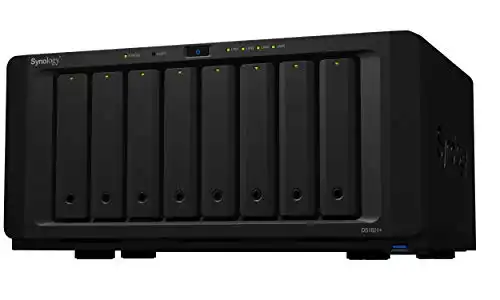Are you looking to enhance the storage performance and data protection of your Synology system?
In this article, we'll explore the various RAID types available for your Synology NAS.
You'll learn about Synology Raid Types like RAID 0, RAID 1, RAID 5, RAID 6, and RAID 10, and how each one can optimize your storage solution.
With these innovative RAID options, you can ensure both speed and security for your important data.
Let's dive in and discover the perfect RAID configuration for your needs!
Table of Contents
ToggleTable of Contents
Synology Raid Types: RAID 0
If you want to maximize your storage capacity and performance, RAID 0 is the perfect choice for you. This innovative RAID level combines multiple drives into a single logical volume, allowing you to take full advantage of your storage resources.
With RAID 0, data is striped across the drives, which means that each drive is working in parallel to read and write data. This results in significantly improved performance, as the workload is distributed evenly across the drives.
Additionally, RAID 0 offers increased storage capacity since the total capacity is the sum of all the drives in the array. However, it's important to note that RAID 0 doesn't provide any redundancy or fault tolerance, so if one drive fails, you may lose all your data.
But if you're looking for speed and ample storage space, RAID 0 is the way to go.
Synology Raid Types: RAID 1
For increased data protection and redundancy, you can consider using RAID 1, which combines two drives into a mirrored configuration. RAID 1 is an innovative solution that ensures your data is safe even if one drive fails.
In this configuration, every bit of data is duplicated on both drives simultaneously, resulting in an exact copy of your data on each drive. This means that if one drive fails, you can still access all your data from the other drive without any interruption.
RAID 1 is an excellent choice for those who prioritize data security and want to minimize the risk of data loss. With RAID 1, you can have peace of mind knowing that your important files and documents are always protected.
Synology Raid Types: RAID 5
With RAID 5, you can achieve a balance between data protection and storage efficiency by striping data across multiple drives while also providing fault tolerance through parity.
This innovative RAID type offers a great solution for those who value both data security and optimized storage capacity.
RAID 5 distributes data across multiple drives, which allows for improved read and write speeds. Additionally, it uses parity information to create fault tolerance, meaning that even if one drive fails, your data remains accessible and intact. This is achieved by calculating and storing parity data across the drives.
RAID 5 is an excellent choice for environments where both performance and protection are crucial, making it a popular option among businesses and individuals seeking innovative storage solutions.
Synology Raid Types: RAID 6
Choose RAID 6 for enhanced data protection and increased fault tolerance in your storage system. RAID 6, also known as double parity, offers an advanced level of data redundancy and resilience. With RAID 6, you can withstand the simultaneous failure of up to two drives without any data loss. This level of fault tolerance ensures that your valuable data remains safe and accessible, even in the event of multiple drive failures.
To better understand the benefits of RAID 6, take a look at the table below:
| RAID Level | Fault Tolerance | Usable Capacity | Performance |
|---|---|---|---|
| RAID 6 | Up to 2 drive failures | (N-2) drives | Moderate |
Synology Raid Types: RAID 10
If you're looking for a RAID level that combines both performance and data protection, RAID 10 is an excellent choice. This innovative RAID configuration offers the best of both worlds, providing high levels of speed and redundancy.
RAID 10, also known as RAID 1+0, utilizes a combination of mirroring and striping techniques to achieve optimal performance and data integrity. By combining multiple sets of mirrored drives and striping data across them, RAID 10 offers excellent read and write speeds while also providing fault tolerance. This means that even if one drive fails, your data remains safe and accessible.
RAID 10 is ideal for applications that require both speed and reliability, such as databases and virtualization environments. With its innovative design, RAID 10 is a top choice for those seeking cutting-edge storage solutionsSynology 8 Bay DiskStation DS1821+ (Diskless), 8-bay; 4gb ddr4. 


